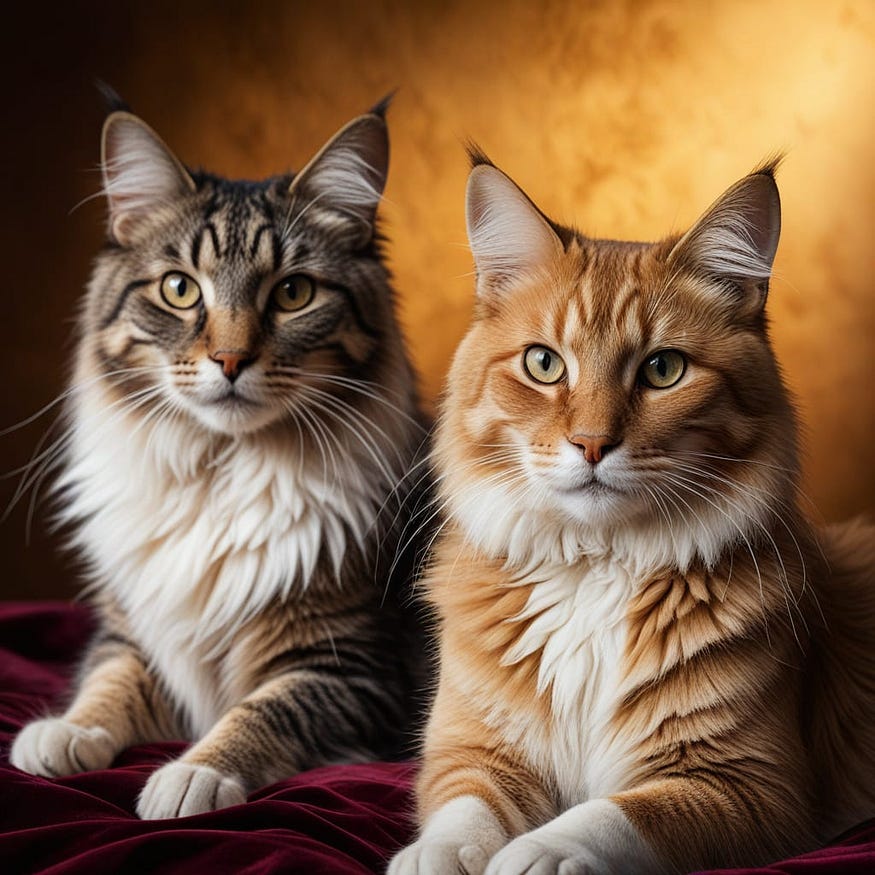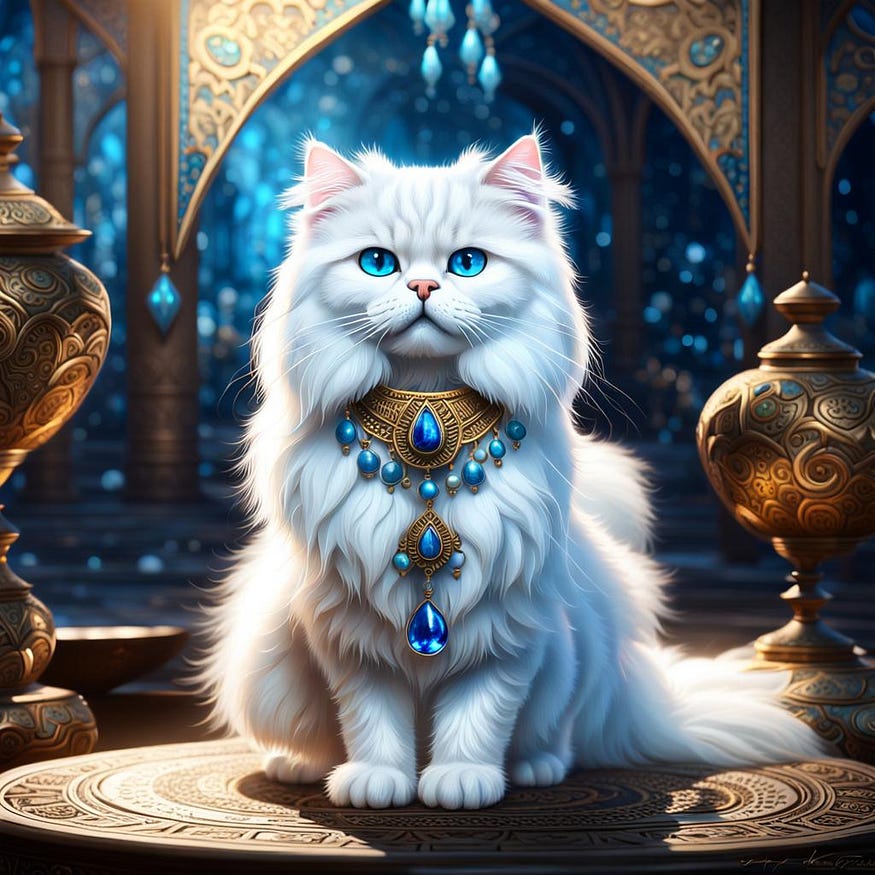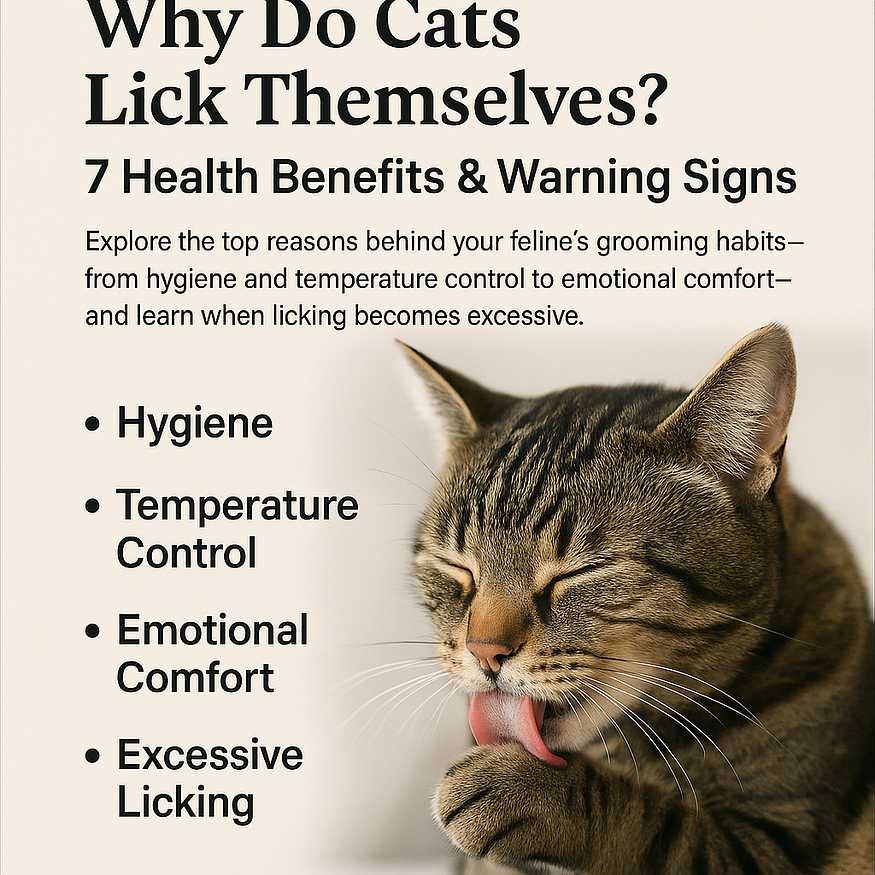Discover five key reasons why your cat follows you — from hunger and attention to security and health cues — to strengthen your bond

This post can be read on Medium
Written by Xena
Introduction
If you’re the owner of one or more cats, you’ve probably noticed your “furry friend” often trailing after you — it really does seem like they’re following you. You might attribute this simply to affection, but research shows there are deeper motivations at play.
Cats follow people to signal specific needs, ranging from food, attention, and security, to curiosity (since they love exploring), and even to indicate stress or illness.
Cats rely on humans as a “safe harbor,” and by following us, they strengthen the bond between pet and owner. They build a “mental map” of rooms and human locations based on auditory and visual cues, which allows them to “follow” you even when you’re out of sight, according to The Guardian.
Understanding why your cat follows you helps you respond appropriately and detect health issues early. In the sections below, we’ll explore these motivations in detail.
1. Communicating Hunger and Resource Needs
One of the most common reasons cats follow you is simply hunger — they want to eat, or they’re checking whether their food bowl is full. Cats quickly learn that you control mealtime, and they’ll trail after you and meow until their bowl is refilled or they receive a treat. Food-motivated cats have perfected this behavior because it reliably results in more food.
2. Seeking Attention and Companionship
If a cat’s daily routine lacks mental or physical stimulation — if she’s bored — she’ll enlist you as a play partner by winding between your legs or persistently meowing. This behavior aims to capture your attention for petting, play, or just companionship, reflecting their enjoyment of human contact.
3. Curiosity and Environmental Exploration
Cats are naturally curious creatures. They'll follow you into unfamiliar or enclosed spaces to investigate new sights, sounds, and smells and scout for opportunities for food, play, or territory expansion. This exploratory instinct helps them feel more secure in their surroundings and reminds us of their innate hunting nature.
4. Security and Bonding
Although cats are often perceived as solitary, domestic cats can form strong attachments to their owners. Bonding with humans has enhanced their survival over generations. They follow you because they see you as the central figure in their “social group,” feeling safer in your presence. Some scientists compare this attachment to the bond between infants and caregivers: proximity to a trusted human can release oxytocin in cats, reducing anxiety and strengthening the cat–human bond.
5. Stress, Illness, and Vulnerability
A change in the intensity or pattern of the following behavior can signal health issues. Injured, ill, or stressed cats may cling more to their owners, seeking comfort and protection. If you notice a sudden increase in following accompanied by other signs, such as loss of appetite or lethargy, schedule a veterinary check-up promptly.
Interpreting Your Cat’s Following Context
- Mealtime cues: Your cat follows you after waking or when it’s time to eat.
- Attention seeking: She follows when bored, looking for company or play.
- Curiosity: She trails you into new or closed-off spaces.
- Security: She follows when stressed by changes (new people, moving homes).
- Health warning: Increased, sudden following paired with appetite loss or lethargy.
Tips for Balancing Your Space and Your Cat’s Needs
- Structured play schedule: To satisfy your cat’s need for attention and exploration, engage in two 10-minute sessions of interactive play each day (Rover.com).
- Automatic feeders: These reduce your presence at mealtimes, decreasing food-driven following (PetMD).
- Environmental enrichment: Install shelves, vertical perches, hiding boxes, and rotating toys to stimulate natural instincts (Purina: Your Pet, Our Passion).
- Regular veterinary check-ups: Early response to behavioral changes can catch health problems sooner (petplan.co.uk).
Conclusion
By observing the context of your cat’s following and their body language, you’ll uncover the true reasons behind their behavior — whether they’re seeking a snack, companionship and play, security, or signaling a health issue. A consistent routine, environmental enrichment, and attentive care will ensure a happy, well-adjusted cat while respecting your own personal space.

Feel free to contact me if you need a writer
If you want to support my work, buy me a coffee for $1 by clicking the link below. This is a small amount for you, but this means a lot to me!
Greetings, and until my next article!
Xena






















